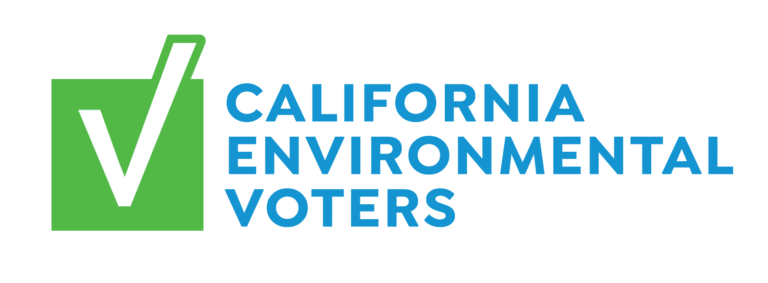
Nearly everyone in the room, from the panelists to the moderator to the audience members, was in agreement: Texas oil companies should stop messing with California’s economy and environment.
This message was echoed by event panelists including venture capitalist and clean-tech investor Vinod Khosla, Google Green Energy Czar Bill Weihl, California Air Resources Board Chairwoman Mary Nichols, and Senior Vice President of PG&E Tom Bottorff.
The event—which was put on by Google and Silicon Valley Leadership Group and co-hosted by the Calif. League of Conservation Voters, Clean Economy Network and Environmental Entrepreneurs— took place at Google headquarters in Mountain View and focused on the incredible opportunities for the Golden State to lead the nation and the world in clean technology, energy efficiency and renewable energy.
But it was impossible to ignore the elephant in the room. Panelists and audience members alike kept returning to the threat of Proposition 23 on the November ballot.
The majority of the funding for the proposition has come from Texas-based oil companies Tesoro and Valero (which just pumped another $3 million into the campaign this past Friday). A report released today by the Oakland-based Ella Baker Center for Human Rights reveals that the two companies have been “repeatedly cited for producing deadly chemicals at their refineries that are exposing millions of California families to harm.” These “Toxic Twins” have the distinction of being two of the top polluters in the state: the U.S. Environmental Protection Agency listed Valero’s oil refinery in Benicia as the fourth largest emitter of chemicals in California in 2009. Tesoro’s refinery in Martinez ranked eighth.
If passed by voters, the oil companies’ Prop 23 would effectively repeal the state’s climate law, AB 32. Passed in 2006 and on schedule to be implemented in 2012, AB 32 is a first-in-the-nation law that creates a framework for the state to reduce its carbon emissions to 1990 levels by the year 2020. Now that the U.S. Senate has failed to take up comprehensive climate legislation, it remains the best model for other states and nations to follow in reducing carbon emissions that contribute to climate change.
According to each of the panelists, AB 32 has been an amazing boon to California’s clean technology sector. Prop 23 would do incredible harm to that one “bright spot” in California’s economy.
Below are a couple of the best quotes from the panelists:
Vinod Khosla:
“In Silicon Valley in the 1980’s, it was all about semiconductors and computers… The next big industry is going to be clean tech… No matter where I look, there’s massive opportunity for innovation. Lighting, air conditioning, making transportation better, agriculture, I could go on forever… New policies in the state created these markets. AB 32 created the markets. Prop 23 will kill the markets and the single largest job growth in the past few years. It will kill the chance to create the next 10 Google’s, the next great companies… Right now California is in position to win the clean tech race. It is our race to lose.”
Tom Bottorff:
“Prop 23 supporters are trying to scare us, by saying implementing AB 32 will be too costly. But it will be implemented in a cost-effective way… [There is disagreement among elected officials about cap-and-trade, however] energy efficiency is something all states can do, as California has done so effectively. It should be at the top of every politician’s list.”
Bill Weihl:
“The 2050 goal is the real goal, the goal of de-carbonizing our economy. We need breakthroughs and policies that stimulate research and development… At Google, we use a lot of energy to run our business, and we depend on the same electrical grid as everyone else. We feel it is our responsibility to make the energy we use as clean as possible, and in most cases it makes economic sense… The prospect of [AB 32] has created jobs; it’s the one bright spot in the economy. Rolling it back would get rid of the certainty that businesses rely on.”
Mary Nichols:
“Everywhere I’ve been in the last several years, people have pointed at California to say, ‘it can be done.’ When we set a benchmark, other people look for how to meet it: The New England states, a Midwestern group, even, quietly, a Southeastern governor’s group – they don’t want to be left out! If Prop 23 were to pass, it would be immediately be taken up as ‘even in California’… It would hurt not just the cause, but also the investments people have been making all over the country. And it would be that much harder to get it going again when the pendulum swings back, as it inevitably will.”
Silicon Valley Leadership Group President and CEO Carl Guardino invited CLCV CEO Warner Chabot up on the stage with the panelists at the conclusion of the program to make a succinct call to action: that everyone who cares about the state’ clean tech leadership join the campaign to stop Prop 23 by visiting the campaign Web site and signing up to get involved in the fight for California’s clean energy future.


